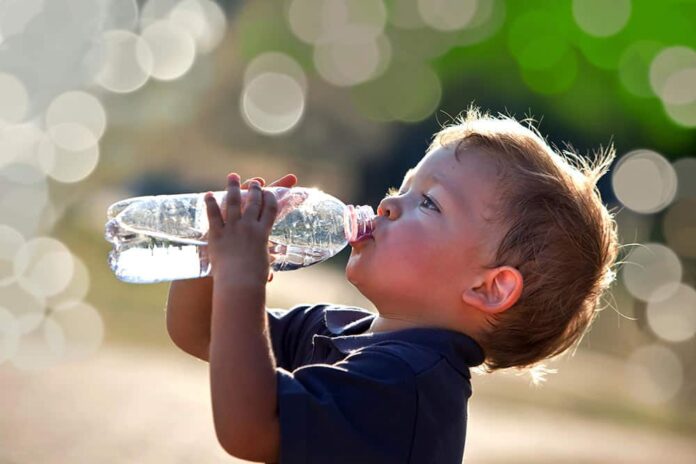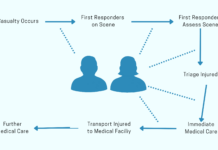Risks of Dehydration:
Dehydration happens when more fluid is leaving the body than entering it. Children are more susceptible to dehydration than older teens and adults because they have smaller bodies. They have smaller reserves of water.
Some toddlers become dehydrated because they don’t drink enough water. Certain factors can also put your toddler at a higher risk of dehydration. These include:
- fever
- vomiting
- diarrhea
- excessive sweating
- poor fluid intake during an illness
- chronic illnesses like diabetes or a bowel disorder
- exposure to hot and humid weather
Signs of Dehydration:
Dehydration can happen very slowly over time, or it can happen suddenly. Toddlers with an illness, especially stomach flu, should be monitored closely for signs of dehydration. The warning signs aren’t always obvious.
Don’t wait until your toddler is excessively thirsty. If they’re really thirsty, they may already be dehydrated. Instead, look out for these warning signs:
- dry, cracked lips
- dark-colored urine
- little or no urine for eight hours
- cold or dry skin
- sunken eyes or sunken soft spot on the head (for babies)
- excessive sleepiness
- low energy levels
- no tears when crying
- extreme fussiness
- fast breathing or heart rate
Treatment of Dehydration
The only way to effectively treat dehydration is to replenish the lost fluids. Mild dehydration can be managed at home. If your toddler has diarrhea, vomiting, or fever, or is showing signs of dehydration, take the following steps.
- Give your toddler an oral rehydration solution like Pedialyte. You can purchase Pedialyte online. These solutions contain water and salts in precise proportions and are easy to digest. Plain water won’t usually be enough. If you don’t have an oral rehydration solution available, you can try milk or diluted juice until you are able to get some.
- Keep giving your toddler liquids slowly until their urine is clear. If your toddler is vomiting, give them only a small amount at a time until they’re able to keep it down. They may only be able to tolerate a spoonful at a time, but anything is better than nothing. Gradually increase the frequency and amount. Giving too much too fast will often cause vomiting to return.
- If you are still breast-feeding, continue to do so. You can also give your baby a rehydration solution in their bottle.
Preventing Dehydration:
It’s important for parents to learn the warning signs of dehydration. If your toddler is excessively thirsty, it may already be too late. Here are some steps to take to prevent dehydration.
Have an oral rehydration solution on hand at all times. These are available in liquids, popsicles, and powders.
- If your toddler gets sick, be proactive about their fluid intake. Start giving them extra water and a rehydration solution at the first sign of an illness.
- Toddlers who won’t eat or drink due to a sore throat may need to ease the pain with acetaminophen (Tylenol) or ibuprofen (Advil). Shop for acetaminophen or ibuprofen at Amazon.
- Make sure your toddler is up-to-date on vaccinations, including the rotavirus vaccine. Rotavirus causes one-third of all diarrhea-related hospitalizations in kids under 5. Talk to your doctor if you have any concerns or questions about the rotavirus vaccine.
- Teach your toddler how to wash their hands before eating or drinking and after using the bathroom to avoid contracting infections.
- Encourage children to drink plenty of water before, during, and after exercise.
- If you’re outside on a hot summer day, allow your toddler to enjoy a pool, sprinkler, or rest in a cool, shaded environment, and offer them plenty of water.
Analysis:
Given that infants and toddlers are just learning to communicate their needs, it is hard for them to tell us or even to know when they are dehydrated. This article laid out very nicely the high risk for toddlers to become dehydrated, the signs, and the steps to rehydrate them. This is crucial information to understand what information young parents are already consuming and how they are already monitoring and treating dehydration. It is clear that there are high risks and lots of factors to be aware of.
Source:
Cafasso, J. (2016, June 2). Signs of dehydration in toddlers: Warning signs. Healthline. Retrieved August 25, 2022, from https://www.healthline.com/health/parenting/signs-of-dehydration-in-toddlers#when-to-see-a-doctor




